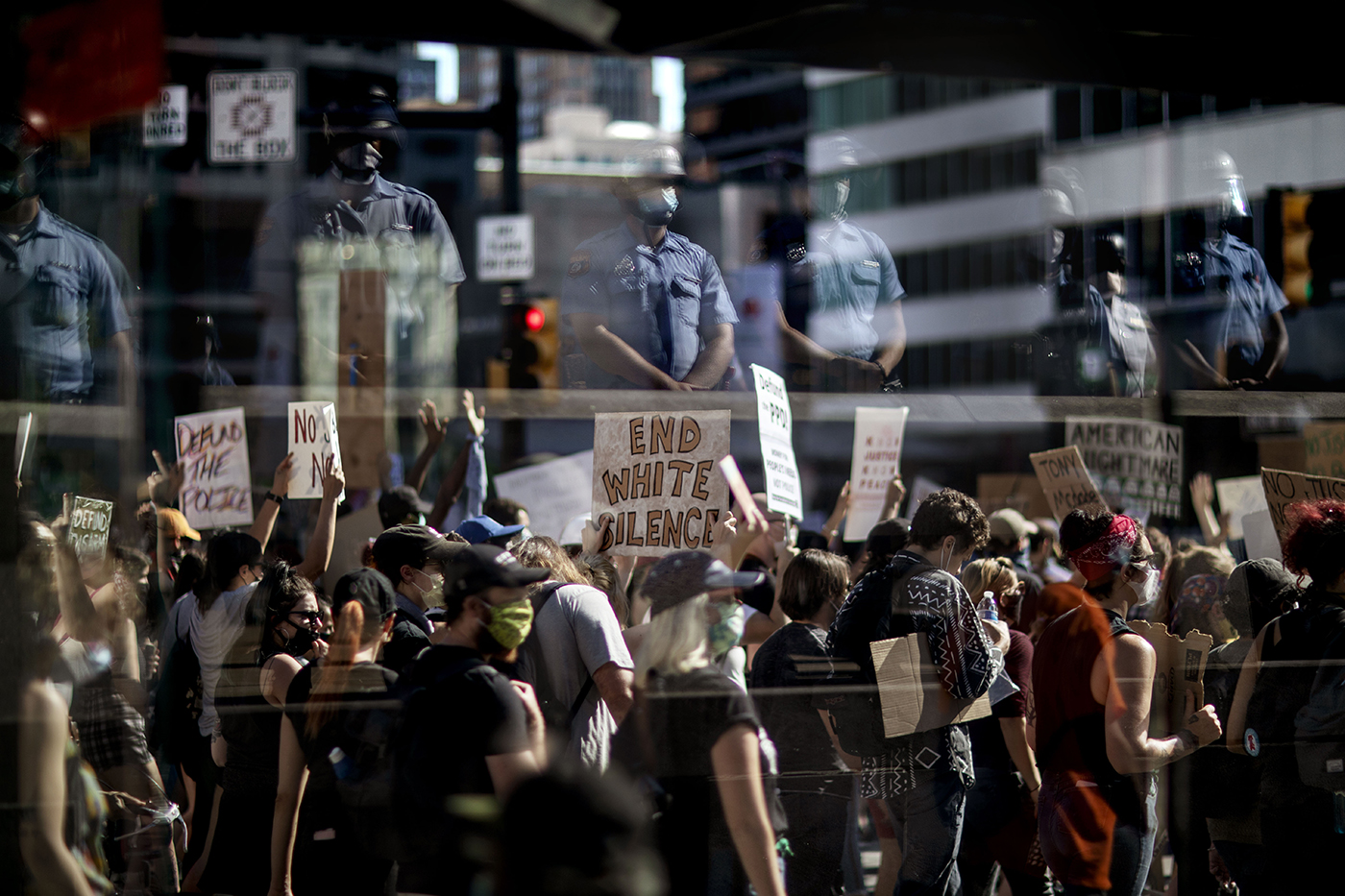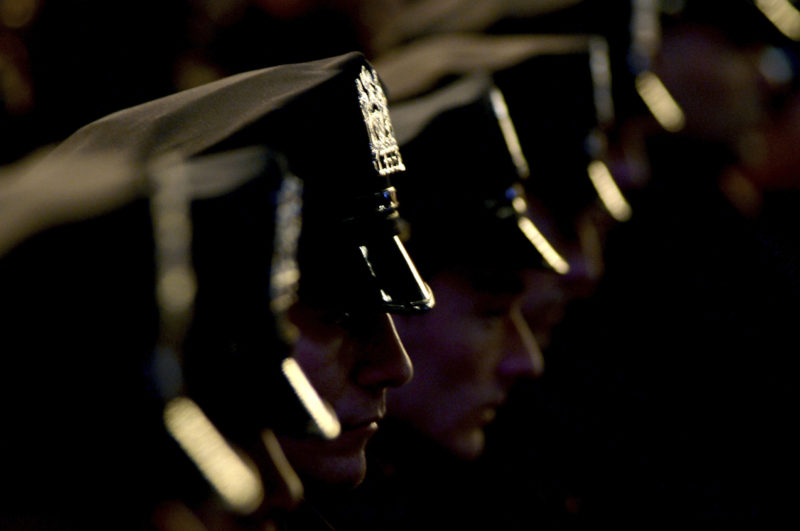Do Black People Get Killed More Than White

The research is clear: White people are not more likely than Black people to be killed by police.
Police officers are reflected in the glass wall of a bus stop as a demonstration calling for the defunding of the police department marches by on June 13, 2020 in Philadelphia. AP Photo/David Goldman
When he was asked this week why Black people are "still dying at the hands of law enforcement" in the U.S., President Donald Trump responded by focusing on white people who had been killed by police.
"So are white people. So are white people. What a terrible question to ask. So are white people," Trump told CBS News in an interview on Tuesday. "More white people, by the way. More white people."
Northeastern professor Matt Miller says that Trump's response was a "grotesque" misdirection that fails to account for the fact that Black people are killed by police at a higher rate than white people. A recent study by Miller found that Black people are shot and killed by police at twice the rate that white people are.

Matthew Miller is a professor of health sciences and epidemiology. Photo by Matthew Modoono/Northeastern University
"He is using the truth to tell a lie," Miller says of Trump. "Or at the very least to mislead, which in either case shows an indifference to the critical question: Why are Black people still dying at the hands of law enforcement?"
Overall, close to 1,000 people are shot to death by police officers in the U.S. every year , according to a database maintained by The Washington Post. It is true that a majority of those victims are white people.
"That's only because there are so many more white people than there are Black people in our country," says Miller, a professor of health sciences and epidemiology who has been researching injury and violence prevention for two decades.
Miller participated in a Northeastern-Harvard data-driven study that combed through shooting deaths by police across 27 states in 2014-15, based on details culled from police and medical-examiner reports by the National Violent Death Reporting System . It found that Black people were killed at a rate higher than their proportion to the national population.
"Although Black people represented 12 percent of the population in the states we studied, they made up 25 percent of the deaths in police shootings," Miller says.
By comparison, Miller says, white people represented 62 percent of the population—and made up 54 percent of the deaths in encounters with police.
Instead of approaching the study with a point of view to be proved or disproved, Miller and his fellow researchers set out on a fact-finding mission. They analyzed the two-year database of 603 firearm homicides by police. They tagged and coded the narratives to put each shooting into context, and then ran the detailed results through a computer program—a meticulous process that took two years to complete.
The study found that the racial disparity was even more pronounced in those cases in which the victims were unarmed and offered minimal to no threat to police.

"In those instances in which the victim appeared to pose a minimal-or-less threat to police, based on the data we had, Black people were three times as likely to be killed," Miller says. "That doesn't mean the police didn't feel threatened. But based on the reports that we were able to to look at, a very low level of threat was directed at the police. And in those specific cases, the numbers rose for Black people: They made up 36 percent of the deaths."
Miller adds that his study, which was released in March, was not an outlier on the issue of race in police shootings.
"Many other studies have shown that Black people are more likely to be killed per capita by law enforcement than are white people in the United States," Miller says. "That is not a disputed statistic."
Miller categorizes Trump's statement as a "misleading" attempt "to dismiss the question."
"The question asked why Black people are still dying, and it was an opportunity to grapple with the underlying process," Miller says. "If you think it's a problem that police are shooting and killing people—whether they are white or Black—then you want to understand why it is happening, because that is the first step in trying to prevent it.
"Trump's lack of curiosity about why this is happening is indicative of not really caring about getting to the bottom of the problem. You can't solve a problem unless you know what the problem is in the first place.
"It would have been OK to answer the question by saying, 'I don't know, but we need to get to the bottom of it'—that would have been an honest response," Miller says. "But to respond in a way that creates greater divisions and minimizes the toll on Black men and women is an obscene use of statistics."
For media inquiries , please contact Shannon Nargi at s.nargi@northeastern.edu or 617-373-5718.
Do Black People Get Killed More Than White
Source: https://news.northeastern.edu/2020/07/16/the-research-is-clear-white-people-are-not-more-likely-than-black-people-to-be-killed-by-police/
0 Response to "Do Black People Get Killed More Than White"
Post a Comment